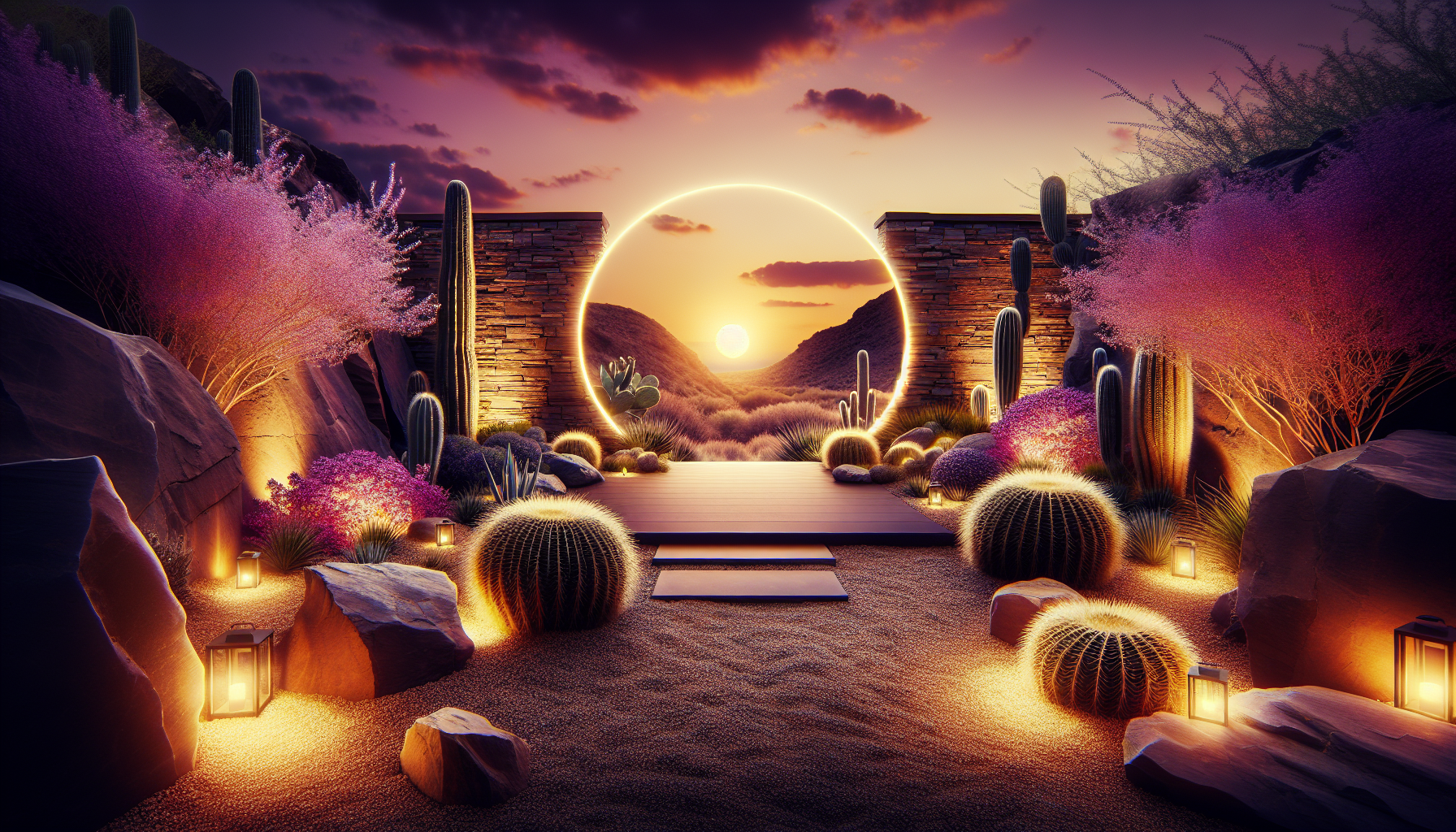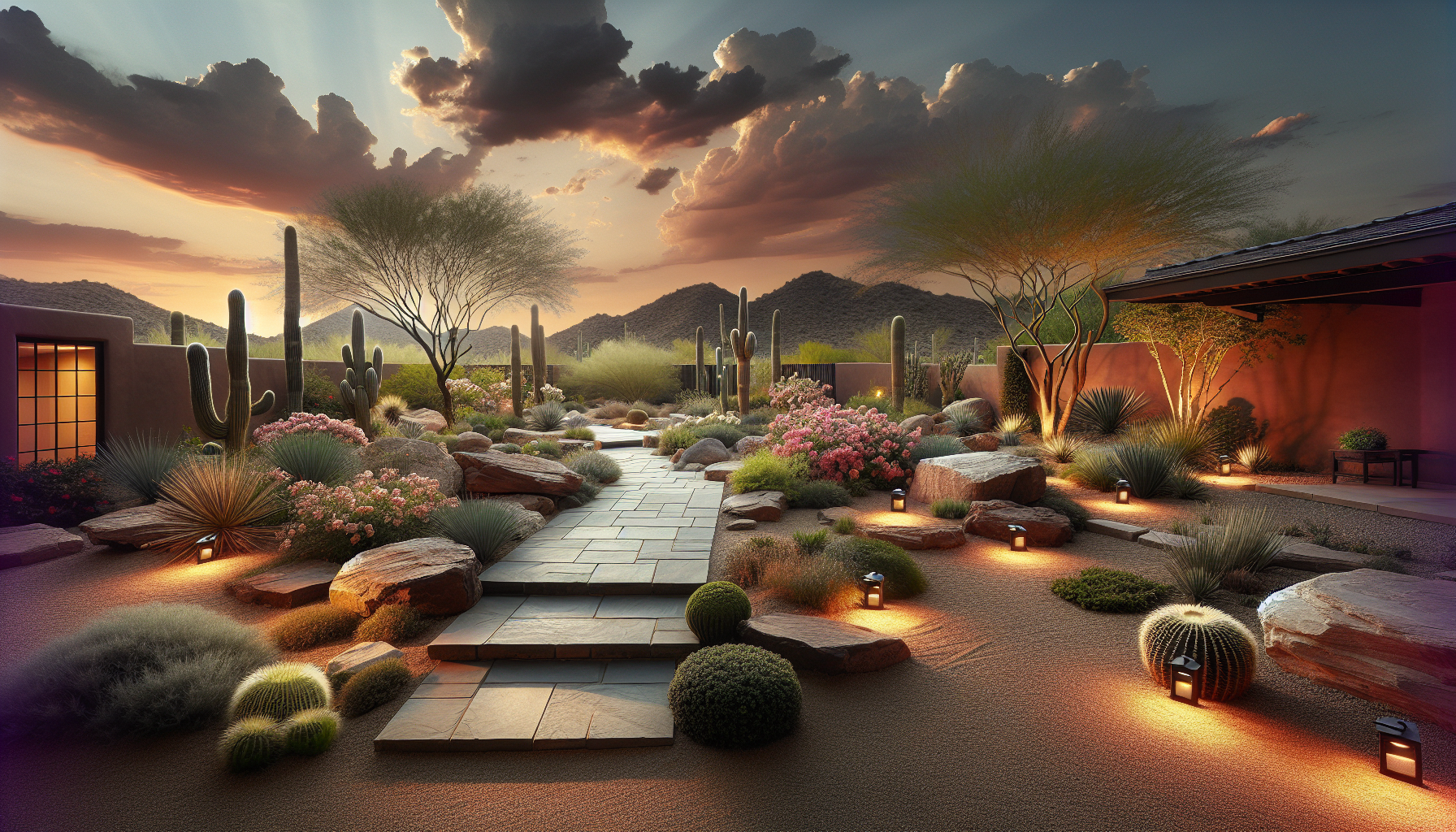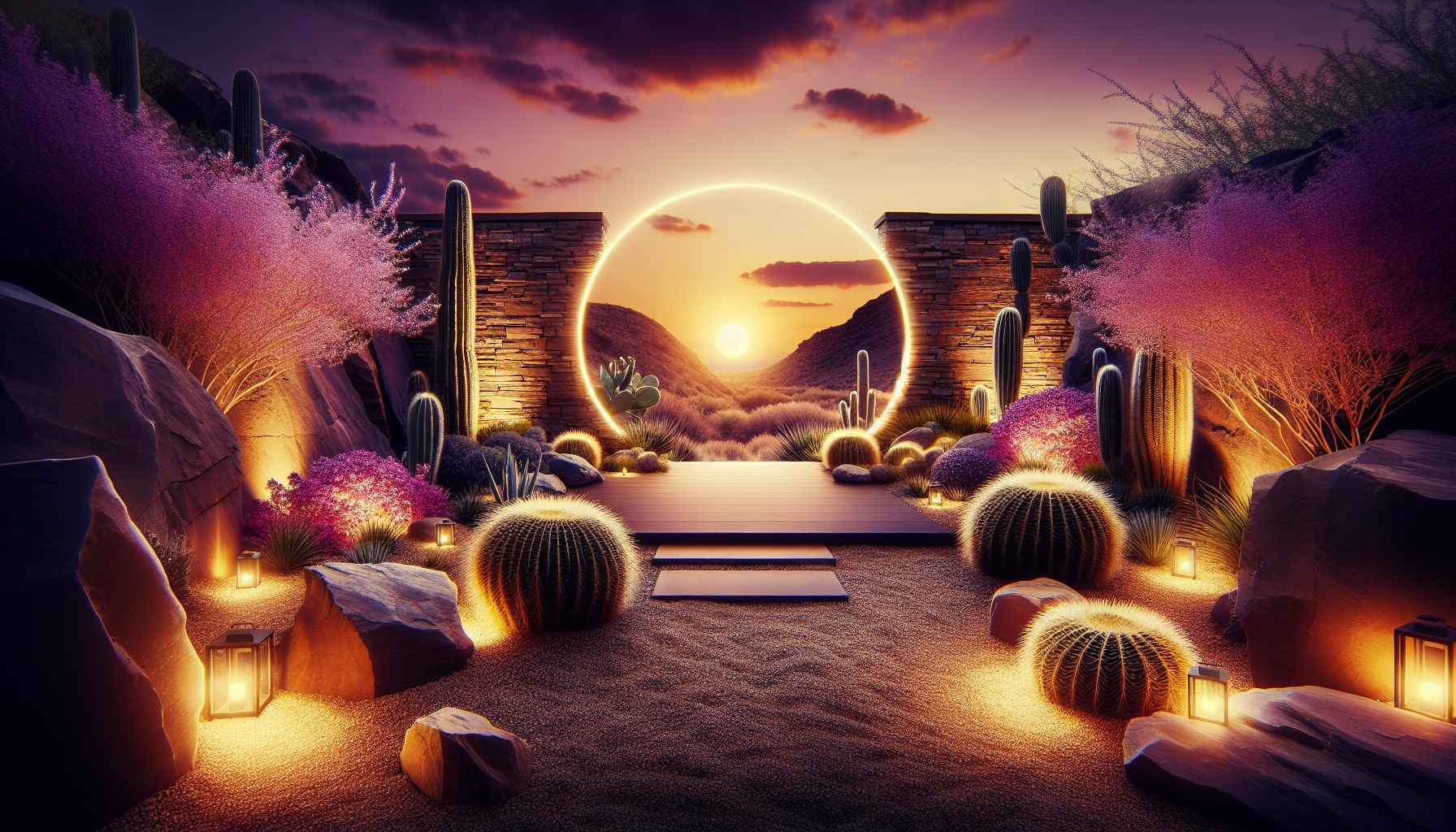Have you ever looked at your yard and wondered how to get it just right? You’re not alone. Many homeowners in Tempe encounter challenges while trying to create the perfect landscape. The good news is there’s a practical solution: hardscaping. Let’s explore how hardscaping can help troubleshoot landscaping issues in Tempe.

Understanding Tempe’s Climate and Environment
Tempe, Arizona, sits in the heart of the Sonoran Desert. It features warm summers and mild winters, making it an attractive place for outdoor living. The city’s landscape includes vibrant desert plants, scenic parks, and a blend of urban and suburban spaces.
The arid climate brings unique challenges. Rain is scarce, and temperatures can soar during summer. These conditions can lead to issues like soil erosion, poor drainage, and plant health problems. Knowing the local environment is crucial when troubleshooting landscape problems.
Landscaping in Tempe often relies on xeriscaping techniques, which focus on using drought-resistant plants and efficient watering practices. However, even with the right plants, you might still face certain issues. That’s where hardscaping comes into play.
What is Hardscaping?
Hardscaping refers to the non-plant elements in your landscape design. This includes features like patios, walkways, retaining walls, and decor made from materials such as stone, brick, or concrete. When done correctly, hardscaping can enhance your outdoor space while also solving various landscape problems.
For instance, if erosion is an issue, a retaining wall can stabilize the soil. If you need a pathway to limit foot traffic and protect your lawn, brick or stone paving can create a durable solution. Hardscaping offers both function and beauty, making your landscape more manageable and visually appealing.

Benefits of Hardscaping in Landscape Troubleshooting
Hardscaping provides several advantages for troubleshooting landscape challenges:
1. Erosion Control
Erosion can quickly damage your property and change the shape of your yard. Hardscaping elements such as retaining walls and gravel beds can prevent soil loss, keeping your landscape intact. By installing these structures, you create barriers that hold the soil in place, especially on sloped areas.
2. Improved Drainage
Poor drainage can lead to standing water, which harms plant roots and promotes pests. Hardscaping offers solutions like a French drain system or permeable pavers that allow water to flow properly. This improves water management and promotes healthy plant growth.
3. Reduced Maintenance
Lush, green lawns may look appealing, but they require constant care. Hardscaping minimizes maintenance needs by offering surfaces that don’t require mowing or watering. This allows you to spend less time on upkeep and more time enjoying your outdoor space.
4. Enhanced Aesthetics
Hardscaping elements can significantly improve the aesthetics of your landscape. They provide structure and visual interest, breaking up large areas of grass or plants. With various materials and designs available, you can customize your outdoor space to match your style.
Key Hardscaping Elements for Your Landscape
When considering hardscaping, there are specific elements that can be particularly beneficial for troubleshooting landscape issues. Let’s look into each of these in more detail.
Patios
Patios create a defined space for seating and entertainment. They can help in managing foot traffic, reducing wear and tear on your lawn. A well-placed patio can also encourage social gatherings and outdoor dining, making your yard more functional.
Walkways
Walkways lead you through your landscape while protecting plants and grass from trampling. Use materials like flagstone or decorative concrete to create unique paths. This not only enhances the landscape aesthetically but also provides practicality.
Retaining Walls
Retaining walls work wonders to combat erosion. They can change the elevation of your yard, allowing for tiered gardens that add visual interest. Additionally, they can define spaces within your landscape, creating areas for planting or seating.
Planters and Raised Beds
Incorporating raised garden beds or planters can improve plant growth by offering better drainage and soil quality. This also helps with pest control, as you can create barriers and add features to suit your needs.
Fire Pits and Outdoor Kitchens
Creating a space for cooking or warmth adds functionality to your landscape. Fire pits and outdoor kitchens extend your living space outdoors, allowing you to enjoy your garden year-round. These elements can make your yard an inviting place for family gatherings.
Steps to Implement Hardscaping Solutions
If you’re ready to use hardscaping for your landscape troubleshooting, here are steps to guide you through the process.
Step 1: Assess Your Landscape Needs
Begin by identifying the challenges you face in your landscape. Are you dealing with erosion issues, poor drainage, or high maintenance demands? Understanding these challenges will help you decide what hardscaping features are necessary.
Step 2: Plan Your Hardscaping Layout
Once you’ve assessed your needs, it’s time to plan. Sketch a layout of your yard and visualize where hardscaping elements will go. Consider functionality, aesthetics, and how different features will work together.
Step 3: Choose Materials
Selecting the right materials is crucial for ensuring durability and appearance. Look for options that are suitable for the climate and complement your existing landscape design. Common materials include natural stone, brick, and concrete.
Step 4: Consult Professionals
If hardscaping feels overwhelming, don’t hesitate to seek help. Professionals can provide valuable insights and help bring your vision to life. They understand the best practices for installation, ensuring your project is successful.
Step 5: Maintain Your Hardscaping
While hardscaping requires less maintenance than plants, some upkeep is still necessary. Regularly check for any damage, clean surfaces, and make repairs as needed. This helps extend the life of your hardscaping features.
How Aren’t Plants Beneficial?
While plants are an essential part of any landscape, they sometimes come with their own sets of challenges. In Tempe’s desert climate, managing plant health can be tricky. Drought-stressed plants may struggle to survive, while others could attract unwanted pests. By integrating hardscaping, you can better manage these issues, ensuring a more successful landscape.
Collaborating with Local Experts
For your hardscaping projects, consider partnering with local experts like Xclusive Home Services. Founded in 2025, they are based in Scottsdale, Arizona, and offer a variety of home services, including hardscaping. Their team can provide design insights, material recommendations, and hands-on assistance.
Contact Information
To discuss your hardscaping needs, reach out to Xclusive Home Services at:
- Location: 14505 N. Hayden Rd., Ste. 101, Scottsdale, AZ 85260
- Phone: (602) 341-5545
- Email: management@xclusivehomeservicesco.com
Getting help from experienced professionals can make the difference between a successful project and one that falls short of your dreams.
Final Thoughts
Your landscape can be a beautiful and functional extension of your home, but it requires a thoughtful approach to troubleshooting. While plants play a key role, hardscaping provides the foundational elements necessary for a successful outdoor space.
By addressing issues like erosion, drainage, and maintenance through hardscaping, you can create an attractive and practical landscape. With careful planning and the right support, your yard can reflect your style and serve your needs.
Consider Xclusive Home Services for all your hardscaping and roofing needs. Their expertise can guide you in creating an outdoor space that sets your home apart while solving your most pressing landscape challenges.


